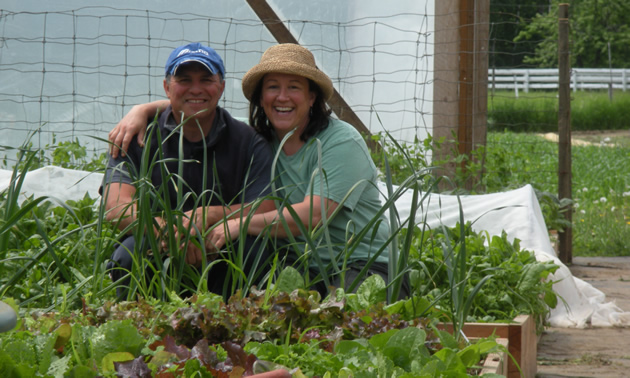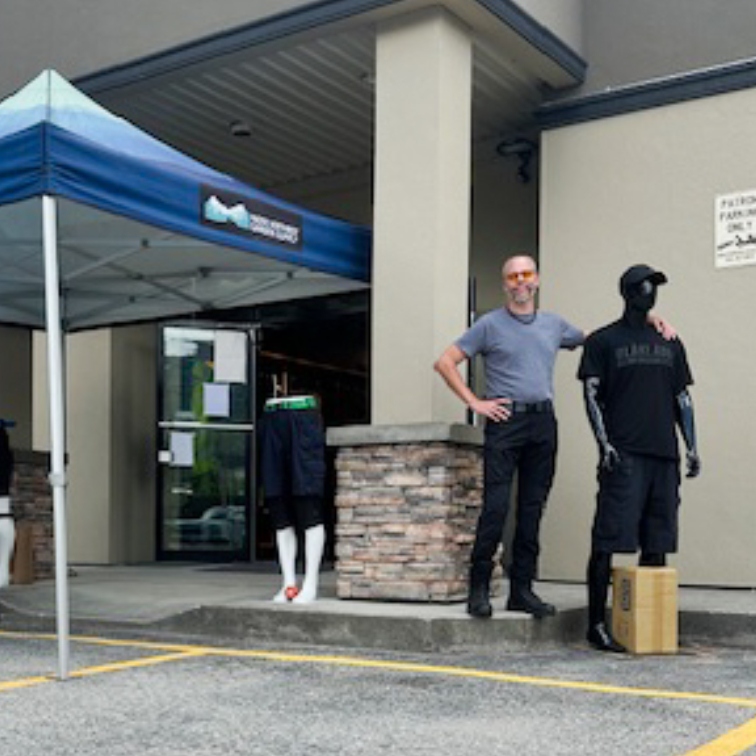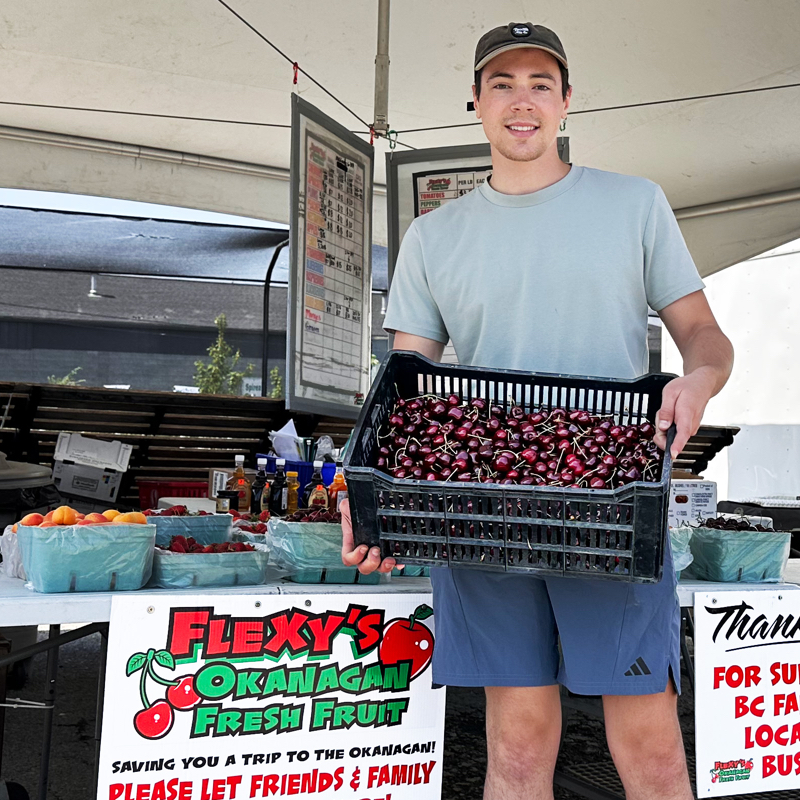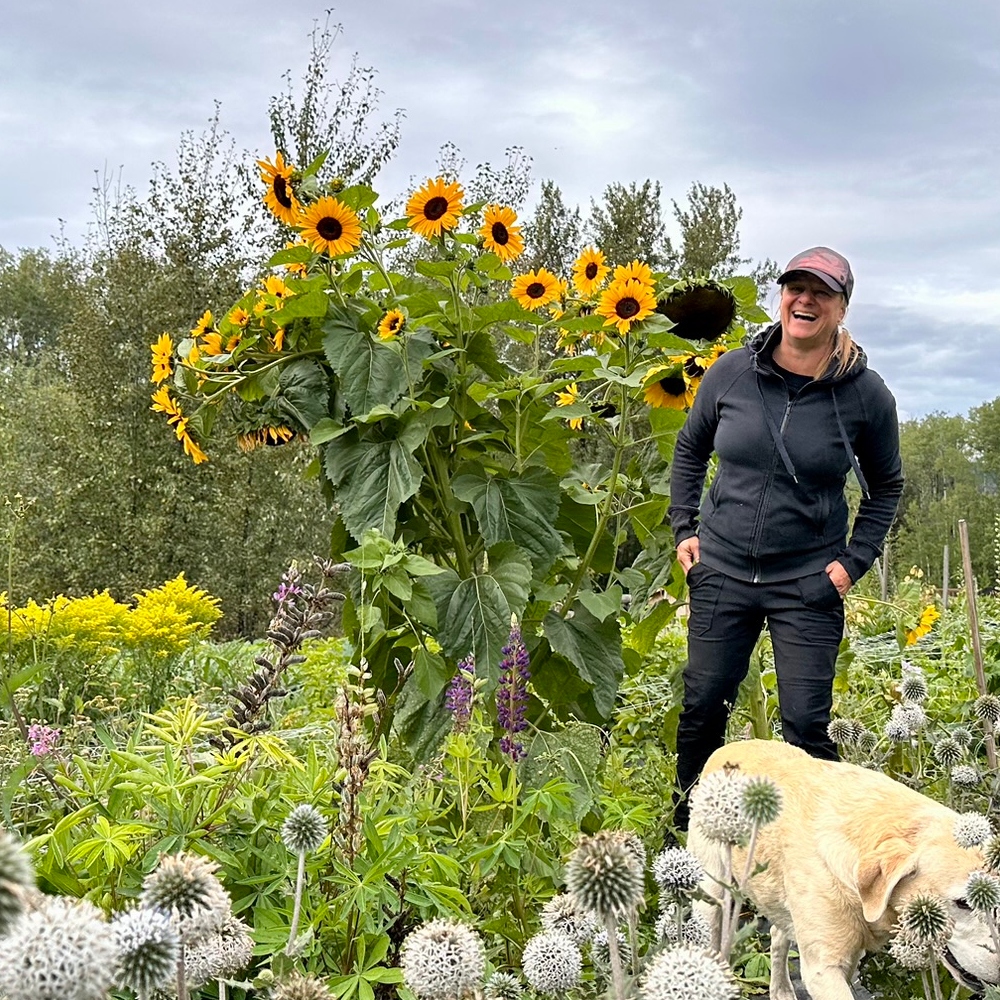A growing business
Earthy Organics Farm offers its owners the challenges of organic agriculture along with the advantages of a farming lifestyle

Earthy Organics Farm is a business and lifestyle embraced by John Abenante and Jeanine Powell. — Photo courtesy Jeanine Powell
Jeanine Powell and John Abenante weren’t planning to become organic farmers when they bought almost 10 acres near Trail, B.C., in 2002. It wasn’t long, however, before the couple started to explore agricultural opportunities on their land. Powell has a degree in science, but an additional course in horticulture had sparked her interest in gardening. By 2004 she was part of the Community Futures program and had begun the organic certification process for Earthy Organics Farm.
At first it was Powell who managed the day-to-day operations on the farm. She has since taken a full-time job, but still stays involved where she can. It’s now Abenante who really focuses his time on making sure the farm continues to run smoothly. He has a background in machinery, which complements Powell’s horticulture training, allowing them to learn from each other.
Community-supported agriculture
Earthy Organics didn’t originally plan to operate as a community-supported agriculture (CSA) operation. This agricultural business method allows customers to purchase an annual share, ensuring regular supplies of produce.
“We ended up talking to people and reading about community-supported agriculture programs,” said Powell, who first operated Earthy Organics Farm as a CSA in 2006. “It seemed like a really good fit for us because it’s just a good way to sell food and to get people involved on the farm. You get to know the people that you sell to.”
Earthy Organics Farm now produces a huge variety of vegetables and some fruits and berries, along with eggs from happy chickens. Honeybees are a new addition and will hopefully add an additional product in the near future. Powell said they’ve recently bought a smaller greenhouse and would like to offer seedlings for sale.
In addition to the CSA memberships, Earthy Organics also sells through farmers markets and farm-gate sales. Building an organic farm is a slow process and, even after a decade, every new expansion takes work, time, experience and a little luck. In small, non-industrialized agriculture, becoming well established can be difficult.
“It would be great to be able to hire people, especially for the tasks that are constant, like weeding,” said Powell. “That would help out tremendously with us being able to maybe take a step back and do some other things that would make the business grow. I think for us that’s probably the biggest challenge, being able to expand when we don’t have the time or the resources to do it."
It’s a good life
Despite the challenges, farming has provided a lifestyle that Abenante and Powell enjoy. Powell said that the most satisfaction comes from helping supply busy individuals with tasty, healthy food. There is also something fulfilling about taking care of the beautiful area in which you live in a responsible way. For now, the joy is in the journey for Earthy Organics Farm—a business that gives back to its owners.
“We look forward to every year and every year we start thinking about things that we could maybe add on,” said Powell. “It’s a good life. If I’ve had a hard day at work (or find myself stressed), I just come home and I unwind for a little bit and then I go down to the garden. It’s just a nice life here.”






Comments